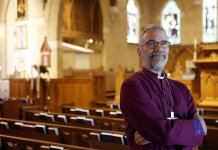My Lords, if I were in a wilderness with a friend dying in extreme agony, days away from any help, with absolutely no medical resource, and he begged me to shoot him, it would surely be right to accede to his request. What that example highlights, however, is that we are not dealing here with an extreme case in an isolated situation; we are talking about a change in the law. The fundamental issue at heart is what the effect will be—particularly over many generations—of changing the law. I ask noble Lords to reflect on what the long-term effect would be.
Fundamental to our society now is respect for the individual worth and dignity of every human individual, which, of course, we in this House all share; there is no question about that. However, let us look ahead to 2025, when there will be 1 million people suffering from dementia, and to 2050, when 2 million people will be suffering from dementia, and a much lower birth rate will mean fewer people to support them financially or look after them. What kinds of questions will be in people’s minds then? Surely, the question will arise: “Should I perhaps ask to go now rather than continue to be a burden on society?”
This is not scaremongering; there is a certain logic to it. If you ask yourself which of the two evils is worse, to suffer from a debilitating illness or to lose mental capacity and the capacity to reason, many of us would say that the second is worse. That logic has been applied in Canada. The noble Baroness, whose passion and whose drawing up of this Bill I much respect, has asked us not to think about Canada, but we have to do so, because that is the way the world is going. In Canada in 2021, for example, as the noble Baroness mentioned, a waiver of final consent permits people to make a written arrangement with a physician or nurse for assisted dying at a future time should they lose their decision-making capacity; that is, if they have dementia.
It is exactly the same in Holland, while in Belgium it goes much further and anybody with a of cluster of ailments—what they call polypathology—can actually ask for assisted dying. Fatigue has been added to the list and, if you are young and claim extreme deep depression, again, you can ask. This is not scaremongering; it is the way a lot of people are beginning to think. The question is whether we really want to go down that route. At the moment, we have a bulwark in place, and I think that that bulwark should stay; I do not want us to go down that road.
22 October 2021 10:59 Column 406










